Related Research Articles
The mass media in Poland consist of several different types of communications media including television, radio, cinema, newspapers, magazines, and Internet.

Wrocław is a city in southwestern Poland and the largest city in the historical region of Silesia. It lies on the banks of the Oder in the Silesian Lowlands of Central Europe, roughly 40 kilometres (25 mi) from the Sudeten Mountains to the south. As of 2023, the official population of Wrocław is 674,132 making it the third largest city in Poland. The population of the Wrocław metropolitan area is around 1.25 million.

Erika Steinbach is a German right-wing politician. She previously served as a member of the Bundestag from 1990 until 2017.
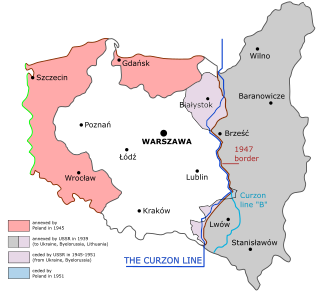
Eastern Borderlands or simply Borderlands was a term coined for the eastern part of the Second Polish Republic during the interwar period (1918–1939). Largely agricultural and extensively multi-ethnic with a Polish minority, it amounted to nearly half of the territory of interwar Poland. Historically situated in the eastern Polish–Lithuanian Commonwealth, following the 18th-century foreign partitions it was divided between the Empires of Russia and Austria-Hungary, and ceded to Poland in 1921 after the Treaty of Riga. As a result of the post-World War II border changes, all of the territory was ceded to the USSR, and none of it is in modern Poland.
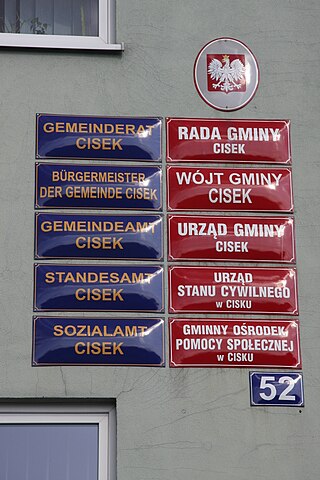
The registered German minority in Poland at the Polish census of 2021 were 144,177.
Gazeta Polska is a Polish language pro-United Right right-wing populist to far-right weekly magazine published in Poland.
Dzierżąznapronounced[d͡ʑerˈʐɔ̃zna] is a village in the administrative district of Gmina Zgierz, within Zgierz County, Łódź Voivodeship, in central Poland. It lies approximately 8 kilometres (5 mi) north of Zgierz and 16 km (10 mi) north of the regional capital Łódź.

The bilateral relations between Poland and Germany have been marked by an extensive and complicated history. Currently, the relations between the two countries are friendly, with the two being allies within NATO and the European Union.

Tomasz Marceli Szarota is a Polish historian and publicist. As a historian, his areas of expertise relate to history of World War II, and everyday life in occupied Poland, in particular, in occupied Warsaw and other occupied major European cities.
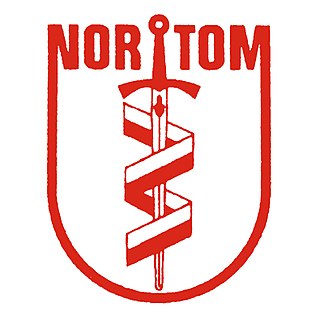
NORTOM is a Polish publishing house, founded in 1992 in Wrocław, specialising in books on Polish history with a focus on the Kresy region of the prewar Second Polish Republic, the Polish literature and political thought, including post-communist economic crises and nationalism. It also publishes religious books for children and youth. Nortom was founded by Norbert Tomczyk, re-elected in December 2000 as member of the Board of Control of the Polish Chamber of Book Publishers, a leader of the marginal National Party dissolved in 2001, whose ideology was based on that of the pre-war National Democratic movement, and which received 0.16% of the Polish vote in the presidential elections.

Jan Marek Hartman is a Polish of Jewish descent philosopher specializing in bioethics, writer, anticlerical, opinion journalist and politician, professor of the humanities.
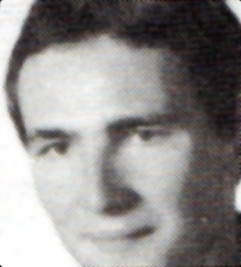
Włodzimierz Borodziej was a Polish historian and writer specializing in contemporary European history with particular focus on Polish-German relations. Borodziej was a professor of humanistic sciences, and former prorector of the Warsaw University. He was the Polish-side Chairman of German-Polish Textbook Commission from 1997 to 2007.
Szymon Roginski is a Polish photographer.
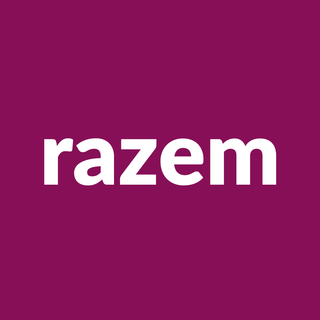
Left Together is a left-wing political party in Poland.
Krzysztof Ryszard Miszczak – Polish scientist, political scientist, Germanist, sinologist, professor extraordinarius, diplomat.

Marek Władysław Prawda is a Polish sociologist and diplomat; since January 2024 he serves as Undersecretary of State of the Ministry of Foreign Affairs. Between April 2016 and 2021 he was Head of Representation – Poland at European Commission.

Jan Krzysztof Żaryn is a Polish historian, professor and politician, who was a Senator in the Senate of Poland from 2015 to 2019.

Iwona Kozłowska is a Polish diplomat, serving as an ambassador to Switzerland (2020–2024).
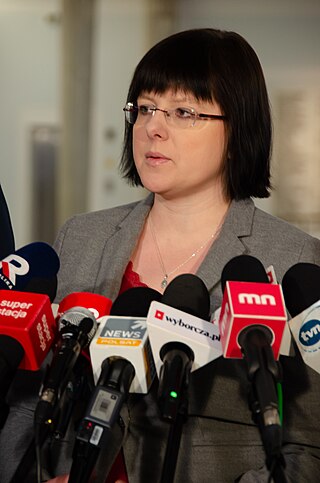
Kaja Godek is a Polish ultra-conservative activist and leader of the foundation Życie i Rodzina. She proposed a law to ban the abortion of fetuses with birth defects or high probability thereof in 2013 and a law to ban LGBT marches in 2021.

Romuald Szeremietiew is a Polish politician, columnist, habilitated doctor of military sciences and associated professor at the Academy of National Defense and the War Studies Academy. He was a founding member of the Confederation of Independent Poland, an anti-communist, Sanationist independence movement. He became a member of the Sejm in 1997 and served as the Minister of National Defense in 1992 and Vice-minister in 1997.
References
- ↑ "prof. dr hab. Klaus Dieter Bachmann, ID: 90012". nauka-polska.pl. Retrieved 28 July 2020.
- ↑ "Klaus Bachmann – Ein Herd der Feindschaft gegen Russland". Perlentaucher.de. 27 September 2001. Retrieved 25 October 2011.
- 1 2 "Deutsches Historisches Institut Warschau Nr. 58". Dhi.waw.pl. Archived from the original on 27 September 2011. Retrieved 25 October 2011.
- ↑ "Stefan Batory Foundation". Batory.org.pl. 21 October 2003. Retrieved 25 October 2011.
- ↑ "FELLOWS : Dr. Klaus Bachmann". AICGS. Archived from the original on 27 September 2011. Retrieved 25 October 2011.
- ↑ "Klaus Bachmann | FEPS". Feps.pl. Archived from the original on 16 August 2011. Retrieved 25 October 2011.
- ↑ "Nominacje profesorskie dla wroclawian, Wroclaw.pl" . Retrieved 13 January 2014.
- ↑ "De Balie: Nieuw Europa: Verslag No. 1". Debalie.nl. Archived from the original on 27 September 2011. Retrieved 25 October 2011.
- ↑ "Klaus Bachmann jak dziedzic pruski – Amstern: "Tez widziane z Niemiec, ale oczami Wypedzonego" – Salon24". Amstern.salon24.pl. 5 February 2009. Retrieved 25 October 2011.
- ↑ "Archive". The Atlantic Times. Archived from the original on 30 September 2011. Retrieved 25 October 2011.
- ↑ "Jak nas widzą Niemcy? – Onet Wiadomości". Wiadomosci.onet.pl. 4 June 2008. Retrieved 25 October 2011.
- ↑ "Tag: klaus bachmann – nikodem.dyzma: "sprawy polsko-niemieckie" – Salon24". Rex.poniatowski.salon24.pl. Retrieved 25 October 2011.
- ↑ "Radio Maryja – Katolicki Głos w Twoim Domu". Radiomaryja.pl. Retrieved 25 October 2011.
- ↑ "Fronda.pl: Hambura i Bachmann w sprawie mniejszości polskiej – Stefan Hambura: "Widziane w Niemczech i z Niemiec" – Salon24". Hambura.salon24.pl. 15 January 2010. Retrieved 25 October 2011.
- ↑ "Poland's President Killed in Plane Crash". CBS News. Retrieved 25 October 2011.
- ↑ "Klaus Bachmann: Wyzwolić prawo, a nie tylko konopie". Wroclaw.gazeta.pl. 19 September 2010. Retrieved 25 October 2011.
- 1 2 "Unia Wrocławia z Kłajpedą nikomu nie jest na rękę". Wroclaw.gazeta.pl. Retrieved 25 October 2011.
- ↑ "Kandydat na prezydenta wielkiego miasta żąda dostępu do morza". dziennik.pl. 7 October 2011. Retrieved 25 October 2011.
- ↑ "Szkołą Wyższa Psychologii Społecznej" . Retrieved 5 January 2013.
- ↑ Klaus Bachmann (28 March 2007). "Klaus Bachmann". Perlentaucher.de. Retrieved 25 October 2011.
- ↑ Polska kaczka w europejskim stawie[Polens Uhren gehen anders: Amazon.de: Klaus Bachmann: Bücher]. 9 September 2009. ASIN 3898500306.
- ↑ "Długi cień Trzeciej Rzeszy – Oficyna Wydawnicza ATUT – Wrocławskie Wydawnictwo Oświatowe". Atut.ig.pl. Retrieved 25 October 2011.
- ↑ "Republika bez gorsetu książka, Klaus Bachmann, Piotr Buras, Sebastian Płóciennik". Historia – Księgarnia internetowa. Bookmaster.pl. Retrieved 25 October 2011.
- ↑ "Klaus Bachman, Michael Fleischer, Olszewski Leon i inni: Rocznik Centrum Studiów Niemieckich i Europejskich im. Willy Brandta Uniwersytetu Wrocławskiego". Wydawnictwo Uniwersytetu Wrocławskiego – Felietony. Skapiec.pl. Retrieved 25 October 2011.
- ↑ "Polska kaczka w europejskim stawie". Polskie szanse i wyzwania po przystąpieniu do Unii Europejskiej / debaty europejskie / Serie wydawnicze / WAIP / Strona główna (in Polish). Waip. Retrieved 25 October 2011.
- ↑ "Niemcy jako państwo cywilne". Studia nad niemiecką polityką zagraniczną książka, Klaus Bachmann, (red.) Buras Piotr – Różne ... – Księgarnia internetowa. Bookmaster.pl. Retrieved 25 October 2011.
- ↑ "Repression, Protest, Toleranz". Oficyna Wydawnicza ATUT – Wrocławskie Wydawnictwo Oświatowe. Atut.ig.pl. Retrieved 25 October 2011.
- ↑ Hans-Peter Meister. "Klaus Bachmann: Die Vertreibung der deutschen Bevölkerung". Transodra 12/13]. Dpg-brandenburg.de. Retrieved 25 October 2011.
- ↑ Arnold Suppan; Wolfgang Mueller (2009). "Peaceful Coexistence" Or "Iron Curtain": Austria, Neutrality and Eastern Europe in the Cold War and Détente, 1955-1989. Lit. p. 363. ISBN 978-3-8258-1978-1.
- ↑ "Reason's cunning – Klaus Bachmann Poland, populism, and involuntary modernization". Eurozine. Archived from the original on 24 December 2007. Retrieved 25 October 2011.
- ↑ "Polens Populisten – Klaus Bachmann". Eurozine. Archived from the original on 8 September 2011. Retrieved 25 October 2011.
- ↑ A. T. Lane (2005). Europe on the Move: The Impact of Eastern Enlargement on the European Union. Lit. p. 55. ISBN 978-3-8258-8947-0.
- ↑ "Autonomia regionow moze blokowac rozwoj, PolskaTimes.pl". Archived from the original on 18 October 2009. Retrieved 3 November 2010.
- ↑ "KLAUS BACHMANN". Gazeta Wyborcza (in Polish). Retrieved 25 October 2011.
- ↑ "Bachmanna hasło wyborcze: Niech żyje litewski Wrocław!". Wroclaw.gazeta.pl. 17 October 2010. Retrieved 25 October 2011.
- ↑ Klaus Bachmann*. "Ziemia dla Niemców, praca dla Polaków". Gazeta Wyborcza. Retrieved 25 October 2011.
- ↑ "Klaus Bachmann: Polityka wskazania kozła ofiarnego". Wroclaw.gazeta.pl. 25 July 2010. Retrieved 25 October 2011.
- ↑ "Prof. Klaus Bachmann: Wypędzeni ulegną marginalizacji – Erika Steinbach, Klaus Bachmann, Niemcy, Opinie, Polityka, Związek Wypędzonych -Opinie". SE.pl. Retrieved 25 October 2011.
- ↑ "Kto lubi Polskę, nie lubi Eriki Steinbach – Erika Steinbach, Klaus Bachmann, Niemcy". SE.pl. Retrieved 25 October 2011.
- ↑ "Klaus Bachmann". Polityka. Retrieved 25 October 2011.